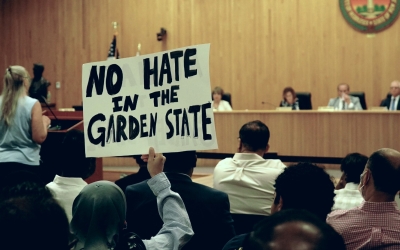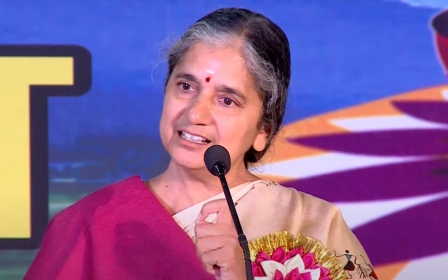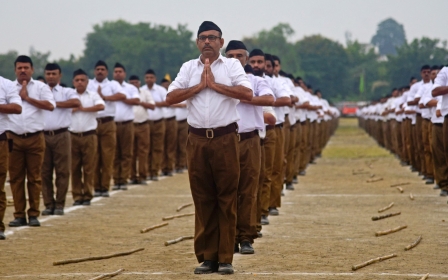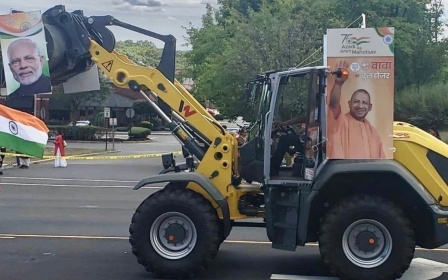US politicians face heat over Hindu nationalist links and support for Modi
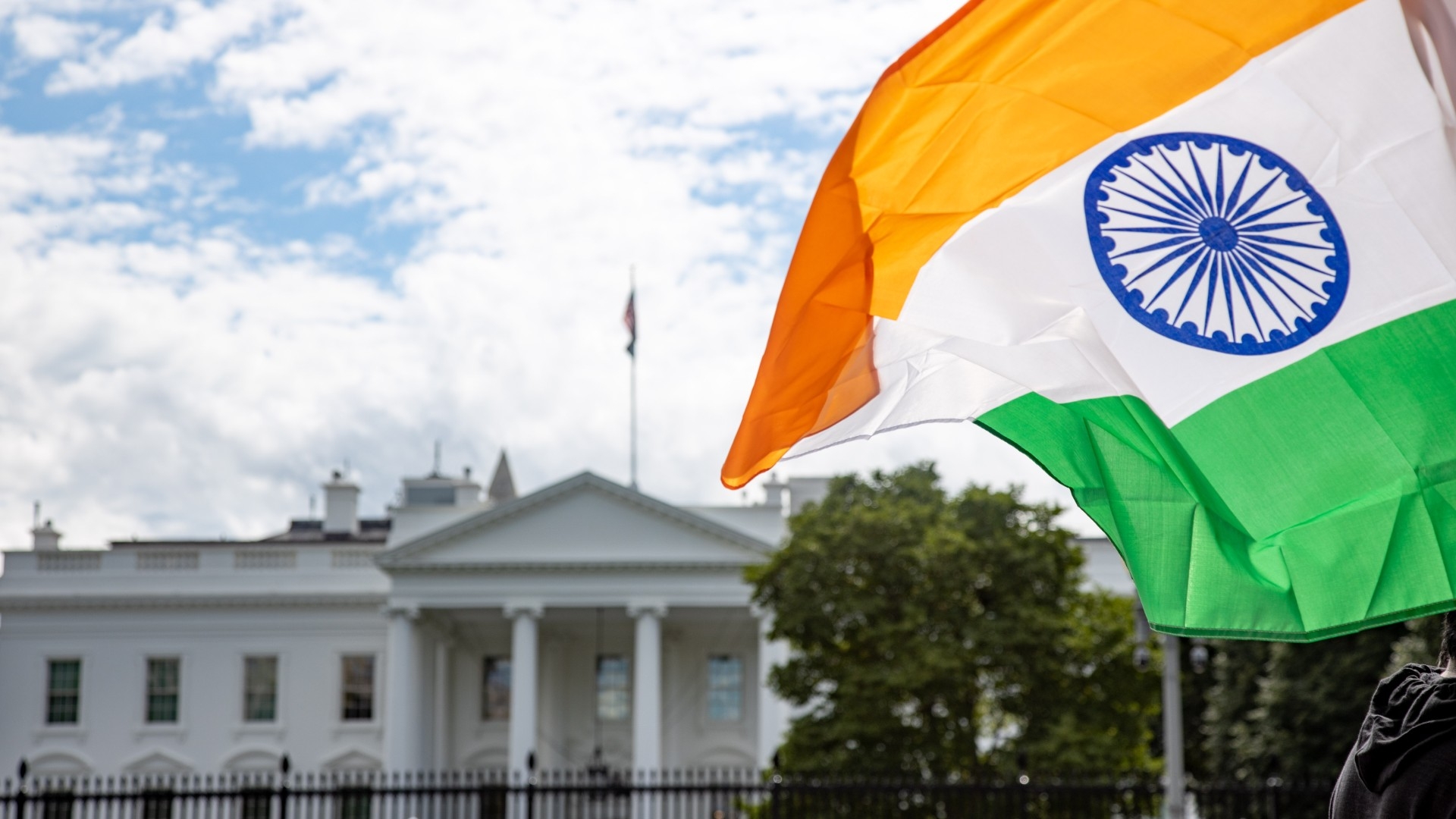
Soon after donating $1,000 to US lawmaker Shri Thanedar’s re-election campaign last year, Quaid Saifee of Detroit, Michigan, realised he had made a mistake.
Saifee, a Muslim businessman, discovered Thanedar is a “champion” of Indian Prime Minister Narendra Modi, a self-proclaimed Hindu hardliner whose policies negatively impact Indian minorities such as Muslims and Christians.
“There was this elephant in the room about Modi,” Saifee told Middle East Eye about meeting Thanedar at a June 2023 fundraiser. “Thanedar seemed like a good guy with nothing to do with Hindutva (Hindu nationalism). Yet sometimes you have a sixth sense like, ‘I should not be here’.”
The next day, Saifee’s daughter emailed him saying that Thanedar had “the honor” of escorting Modi to an upcoming joint session of US Congress. Saifee demanded his donation be returned.
“I did not want to donate to someone championing Modi and Hindutva in the US,” says Saifee.
New MEE newsletter: Jerusalem Dispatch
Sign up to get the latest insights and analysis on Israel-Palestine, alongside Turkey Unpacked and other MEE newsletters
Saifee is not alone.
An increasing number of voters, especially Indian-Americans, are organising against American politicians for apparent connections to Hindu nationalist organisations and their support for Modi.
Besides Thanedar, these include Illinois Congressman Raja Krishnamoorthi, Maryland Lieutenant Governor Aruna Miller, and Vivek Ramaswamy, who withdrew from the Republican primary for US president this year.
A recent example is Bhavini Patel, who unsuccessfully challenged US lawmaker Summer Lee of Pennsylvania’s 12th district in April 2024.
Patel faced pushback for fundraising with Mihir Meghani, a co-founder of the Hindu American Foundation (HAF), which has worked to block congressional criticism of Modi and his policies. Other Patel supporters included father-son duo, Ramesh and Rishi Bhutada.
Rishi Bhutada is an HAF director while Ramesh Bhutada is vice-president of Hindu Swayamsevak Sangh (HSS), the global arm of India’s Rashtriya Swayamsevak Sangh (RSS).
Rishi Bhutada refused Middle East Eye's requests for comment and Ramesh Bhutada could not be reached for comment.
The RSS, founded in 1925, is a paramilitary Hindu nationalist organisation. Its founders expressed admiration for European fascists in Italy and Germany and detailed their vision of cleansing India of all non-Hindus, especially casting Muslims and Christians as “foreign” to the land, “internal threats”, and “traitors” because they are not Hindu. The RSS is implicated in many massacres of religious minorities.
'Tearing India’s social fabric apart'
A March 2024 statement by the Alliance for South Asian Progressives in Pittsburgh warned that the normalisation of Hindu nationalism by campaigns “like Patel’s” impacts marginalised groups. Over 100 South Asian American leaders signed a letter of concern calling out Patel, Thanedar, and others for what they saw as their association with Hindu supremacist organisations.
Sunita Viswanath, executive director of Hindus for Human Rights (HfHR), a progressive anti-Hindutva group, told MEE that Modi’s Hindu nationalist agenda is “tearing India’s social fabric apart”.
As US politicians accept money from Hindutva supporters, she says, “Those who say they represent Hindu Americans must contend with our entire community, including those of us who stand against caste and Hindutva, or face the heat if they don’t.”
Middle East Eye reached out to Shri Thanedar for comment but did not receive a reply by the time of publication.
'I oppose Hindu nationalism [in America] just like I oppose any ethno-nationalist group in our country'
- Congressman Andy Levin
Dr Audrey Truschke, a professor of South Asian studies at Rutgers University, says the RSS is “modeled on Italian fascist groups such as Mussolini’s Blackshirts.” Modi is a lifelong member of the RSS, the parent organisation of his Bharatiya Janata Party (BJP).
Truschke notes experts are warning, “Signs of genocide are already manifest in India.”
Georgetown University’s Bridge Initiative argues that India is in the final stages of perpetrating genocide against Muslims. Yet few US lawmakers are speaking about the rise of Hindutva.
One of the few voices is former Congressman Andy Levin (MI-D), who told MEE that the BJP is a “religious nationalist party that has specific policies that discriminate against minorities”.
Claiming that Modi is “threatening the health” of Indian democracy while Hindutva groups operate in the US, Levin says, “I oppose Hindu nationalism [in America] just like I oppose any ethno-nationalist group in our country”.
Yet Levin says most members of Congress are “afraid to say anything”, adding, “God forbid you come out and express yourself.”
Rising resistance to Hindu nationalism in US
Now, civil society coalitions around the US are speaking up, especially about the influence of Hindu nationalism in the 2024 election cycle.
“We see the rise of candidates taking considerable money and support from various individuals and organizations affiliated with the Hindu supremacist movement,” Pranay Somayajula, director of Organizing and Advocacy with HfHR, told MEE. He says diverse coalitions from both Indian and non-Indian communities are now pushing back.
HfHR recently joined over 100 organisations in another coalition letter, pledging to support calls for the US to “center human rights and democracy” in dialogues with India.
Meanwhile, co-signer and the Illinois-based South Asian Coalition to Renew Democracy (Sacred) is circulating a 2024 “Nonviolence Pledge,” asking politicians to “reject funding from groups that advance anti-democratic, supremacist agendas”.
Congressman Raja Krishnamoorthi, who has yet to sign, first faced “pushback” over his Hindutva links in 2022.
“Raja chose to look the other way when a call for genocide is happening in India,” his challenger, Junaid Ahmed, told The Chicago Reader in June 2022. “He chooses to still keep associating with these people.”
Ahmed, an Indian-American Muslim, made Hindu nationalism a campaign issue, calling out Krishnamoorthi “for taking money from donors associated with radical extremists persecuting millions of people in India.” Ahmed offered tough competition, taking 30 percent of the vote, the most of any challenger to Krishnamoorthi in three previous primaries.
“It’s shocking that extremist groups brought this type of hate to Illinois,” Sacred founder Pushkar Sharma told MEE. “With historic ties to global white supremacist and antisemitic ideologies, Hindu supremacist hate is a clear and present danger to multifaith, multiracial democracy worldwide.”
Raja Krishnamoorthi could not be reached for comment.
Recent reporting documents Maryland Lieutenant Governor Aruna Miller’s links to leaders in the Overseas Friends of the BJP (OFBJP), the US wing of the BJP, which is a registered Foreign Agent in America, as well as to others, including the Bhutada family. Miller, states one report, faces questions for taking thousands of dollars in campaign donations “from people sympathetic to Hindutva”.
Robert Stubblefield, an activist with “No Hindutva MD,” a coalition of over a dozen organisations opposing Miller, told MEE: “As a Black activist, what concerns me about Hindutva is, in addition to reinforcing the caste system on steroids, it is also heavily influenced by Nazism to the point the RSS was inspired by Hitler’s SS.”
Stubblefield says No Hindutva MD is “educating communities and beginning the process of building a liberation movement to ensure these ideologies do not show their ugly heads again”.
Aruna Miller, Vivek Ramaswamy, and Mihir Meghani were all contacted for comment but did not respond by the time of publication.
Middle East Eye delivers independent and unrivalled coverage and analysis of the Middle East, North Africa and beyond. To learn more about republishing this content and the associated fees, please fill out this form. More about MEE can be found here.


